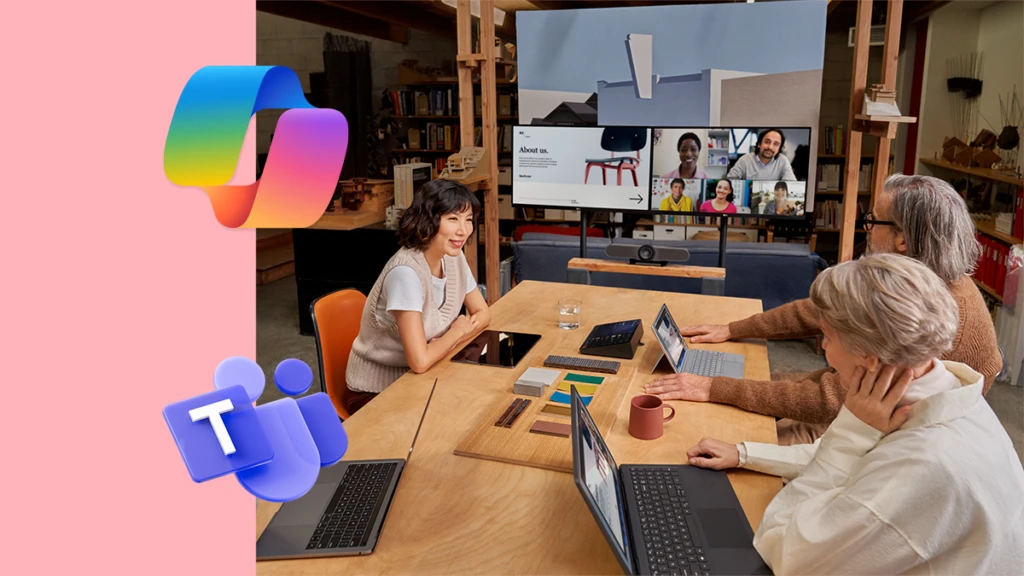
In today’s fast-paced and interconnected world, effective collaboration lies at the heart of success for businesses and teams alike. With the rise of remote work and dispersed teams, the need for robust collaboration tools has never been greater. Among the leading platforms in this space, Microsoft Teams has emerged as a powerhouse, offering a comprehensive suite of features designed to streamline communication, enhance productivity, and foster teamwork.
Now, with the integration of artificial intelligence (AI) capabilities, Microsoft Teams is poised to revolutionize the way teams collaborate, innovate, and achieve their goals. Let’s explore how AI-powered features are transforming the collaboration experience within Microsoft Teams.
Enhancing Meetings with AI
Meetings are a cornerstone of teamwork, but they can also be a source of frustration and inefficiency if not managed effectively. AI-powered features in Microsoft Teams are reshaping the meeting experience from start to finish. Intelligent scheduling algorithms analyze participants’ availability, preferences, and time zones to suggest optimal meeting times, minimizing scheduling conflicts and maximizing attendance.
During meetings, AI-driven transcription services provide real-time captions, making discussions more accessible to participants with hearing impairments and enabling easier reference to key points after the meeting. Moreover, AI-powered noise suppression filters out background distractions, ensuring that participants can focus on the conversation at hand, even in noisy environments.
Streamlining Communication and Collaboration
Effective communication is the lifeblood of collaboration, and Microsoft Teams leverages AI to streamline communication channels and enhance collaboration workflows. AI-driven chatbots provide personalized assistance to users, answering queries, scheduling meetings, and automating routine tasks. Natural language processing (NLP) algorithms enable Teams to understand user intent and provide relevant suggestions, making conversations more efficient and productive.
Furthermore, AI-powered recommendation engines analyze users’ interaction patterns and preferences to surface relevant content and resources, ensuring that team members have access to the information they need, when they need it. Whether it’s finding a relevant document, locating a colleague with specific expertise, or discovering relevant training materials, AI empowers Teams users to work smarter, not harder.
Driving Data-Driven Decision-Making
Data is the lifeblood of modern organizations, and AI-powered analytics in Microsoft Teams provide valuable insights into team performance, communication patterns, and collaboration dynamics. By analyzing metadata from chats, meetings, and shared documents, AI algorithms generate actionable insights that enable teams to identify bottlenecks, optimize workflows, and make data-driven decisions.
Moreover, AI-driven sentiment analysis tools monitor the emotional tone of conversations within Teams channels, providing early indicators of potential conflicts or morale issues. By proactively addressing these issues, teams can foster a more positive and inclusive work environment, leading to higher engagement and productivity.
Embracing the Future of Collaboration
As we look towards the future of work, the integration of AI capabilities into collaboration platforms like Microsoft Teams holds immense promise for organizations seeking to thrive in an increasingly digital and interconnected world. By harnessing the power of AI to enhance meetings, streamline communication, and drive data-driven decision-making, Teams empowers teams to collaborate more effectively, innovate more rapidly, and achieve their goals with greater agility and resilience.
However, realizing the full potential of AI-powered collaboration requires more than just technology—it requires a cultural shift towards embracing change, fostering collaboration, and nurturing a growth mindset. Organizations that prioritize innovation, invest in digital fluency, and empower their teams to leverage AI technologies will be best positioned to succeed in this rapidly evolving landscape.
In conclusion, AI-powered collaboration with Microsoft Teams represents a transformative opportunity for organizations seeking to unlock the full potential of their teams and drive meaningful business outcomes in an increasingly competitive and complex world. By embracing AI-driven innovation, organizations can pave the way for a future where collaboration knows no bounds, and success knows no limits.
